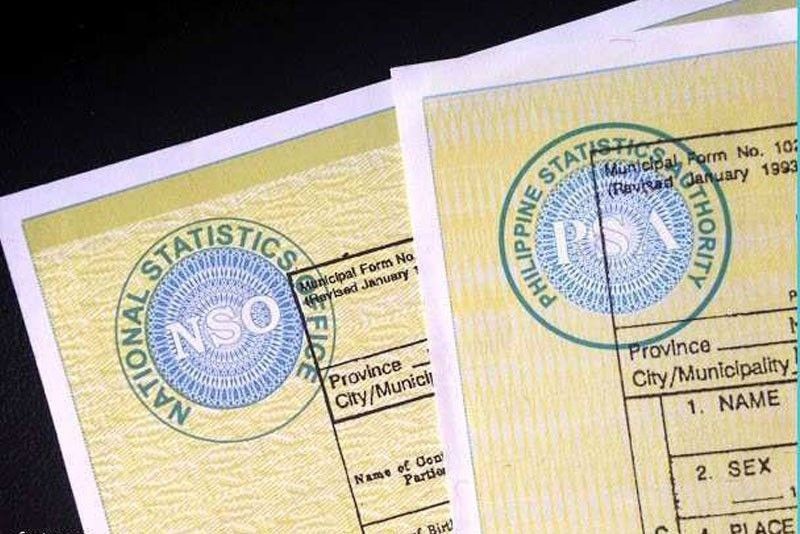CHR welcomes approval of bill on lifetime validity of birth, death certificates

MANILA, Philippines — The Commission on Human Rights welcomed Thursday the unanimous passage of Senate Bill No. 2450 — a remedial legislation conferring lifetime validity on birth, death and marriage certificates — saying this would ease the burden on ordinary citizens from far-flung areas.
To recall, Senate Bill No. 2450 approved Monday on the third and final reading categorically nullifies the requirement of some government and private institutions to have these documents be obtained and submitted within a six-month validity period due to the expiring of its security paper.
Under the measure, all government offices, private companies, schools and non-government entities will be banned from requiring newly-issued birth, death or marriage certificates from those transacting business with them.
"The Commission fully supports this bill as it will vastly ease the burden on ordinary citizens, especially those that hail from far-flung areas, from exerting their time, money, and effort on civil registry documents that should be as immutable and legitimate as their right to recognition," the CHR said in a statement Thursday morning.
"We welcome this inclusive development and urge its immediate ratification so the President may sign it into law."
The bill also states that as long as the official document remains intact, readable, and visibly contains the authenticity and security features, it shall have permanent validity “regardless of the date of issuance and shall be recognized and accepted in all government or private transactions or services requiring submission thereof, as proof of identity and legal status of a person.”
With senators having approved the bill to a 21-0 vote and the House of Representatives having passed a counterpart measure in June last year, the bill will now be deliberated on by a bicameral conference committee.
Should the bill be passed into law, the government will enforce the permanent validity of live birth, death, and marriage certificates issued and certified by the Philippine Statistics Authority and the National Statistics Office.
Once enacted into law, a punishment of one to six months imprisonment or a fine of not less than P5,000 but not more than P10,000, or both at the discretion of the court, shall be meted to any person who will be found guilty of violating this law.
"If the violation is committed by a public official or employee, an accessory penalty of temporary disqualification to hold public office shall likewise be imposed," the bill stated.
- Latest
- Trending

































